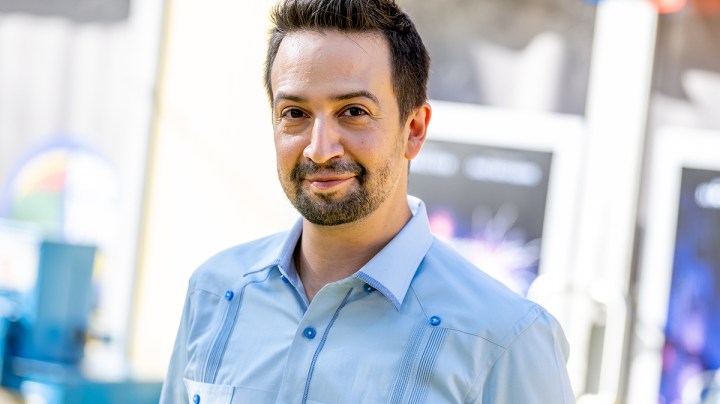Lin-Manuel Miranda Talks About ‘In the Heights’ Backlash, Again

Lin-Manuel Miranda attends "In The Heights" 2021 Tribeca Festival opening night premiere at United Palace Theater on June 09, 2021 in New York City. Photo by Roy Rochlin/WireImage.
While promoting his directorial film debut tick, tick…boom, which begins streaming on Netflix this Friday (November 19), Oscar-nominated songwriter and Broadway superstar Lin-Manuel Miranda (Hamilton) continues to field questions about the controversy that arose this past summer with the release of his film musical In the Heights.
Adapted to the screen from his Broadway production written by him and Quiara Alegría Hudes, In the Heights was met with criticism from those who felt that the film lacked Afro-Latine representation. Miranda spoke to The New Yorker about the backlash it received from some audiences. He said he understood the criticism and would’ve probably spoken up, too.
“Once something has success, you’re not the underdog trying to make it happen anymore,” Miranda told the publication. “You have to graduate past the mindset of, like, ‘It’s a miracle I got something on the stage.’ Because now that is expected of me. And people go, ‘Yeah, but what about this? And what about this?’ And that’s fair! I do that with art I find lacking.”
Miranda didn’t consider the experience he went through this past summer as an example of “cancellation” in Hollywood. “That’s having opinions,” he said. “So, I try to take it in that spirit.”
He also said that “at the end of the day, you can’t control how the world receives something. All you can control is what your intentions were.” In terms of Miranda’s intentions, he said that they were all good, although he still made an apology to the Afro-Latine community who were displeased with the final film.
“I can hear the hurt and frustration over colorism, of feeling unseen in the feedback,” he said at the time. “I hear that without sufficient dark-skinned Afro-Latino representation, the work feels extractive of the community we wanted so much to represent with pride and joy.”
He continued with, “I’m truly sorry. I’m learning from the feedback, I thank you for raising it, and I’m listening. I’m trying to hold space for both the incredible pride in the movie we made and be accountable for our shortcomings. Thanks for your honest feedback. I promise to do better in my future projects, and I’m dedicated to the learning and evolving we all have to do to make sure we are honoring our diverse and vibrant community.”